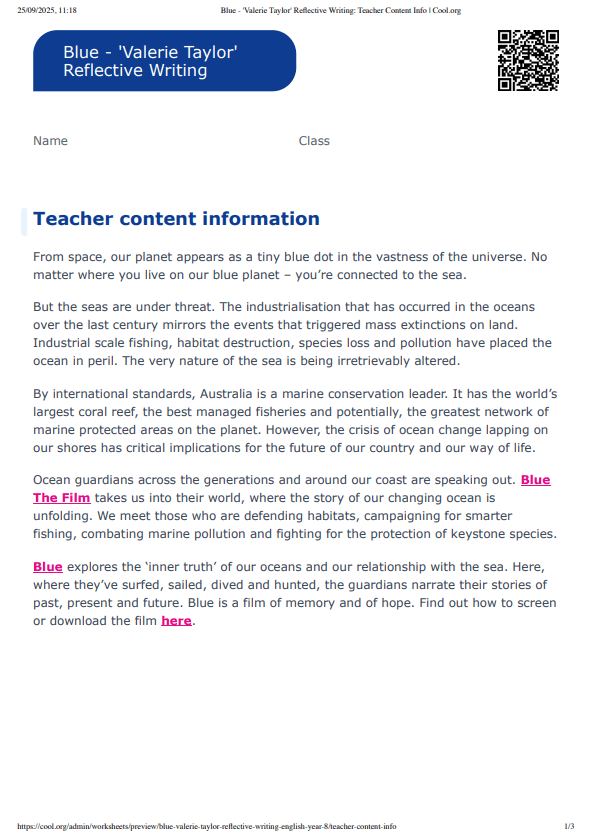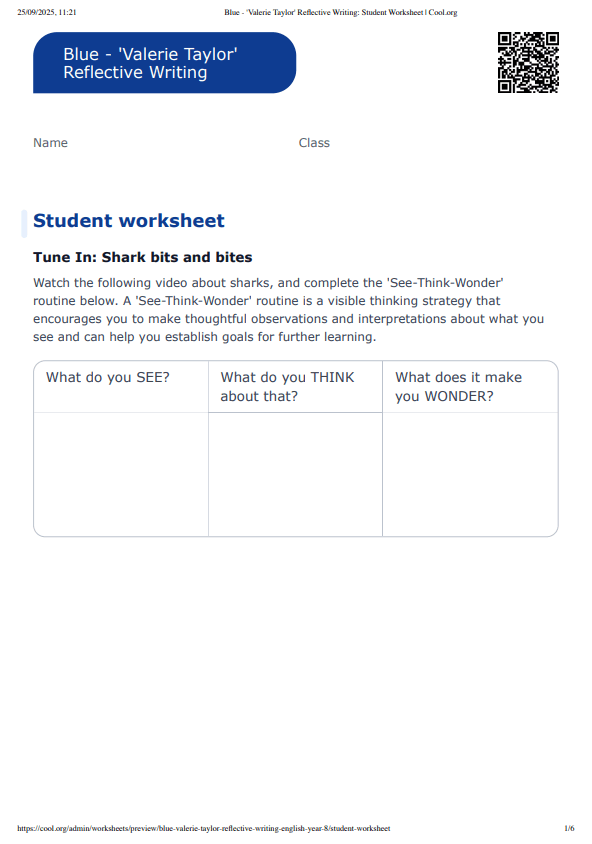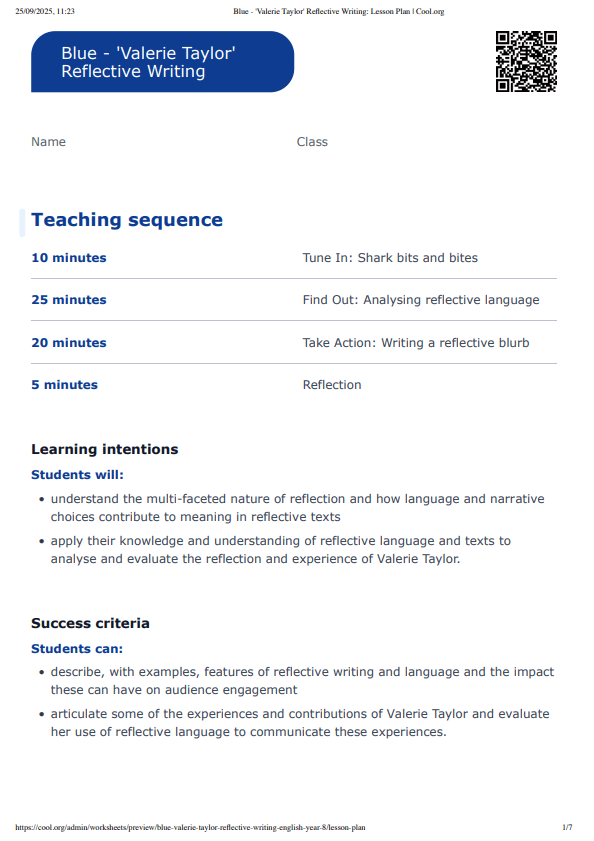
Blue - 'Valerie Taylor' Reflective Writing
Lesson10 of 10 in this unit
Year 7 - 8EnglishCreative writingLearning through filmEnvironmentalBiodiversityConservationOceansWater
Summary
Lesson Guides and Printables
Teacher Content Info

Student Worksheet

Lesson Plan
